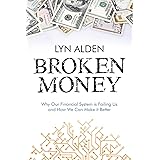
Enjoy fast, free delivery, exclusive deals, and award-winning movies & TV shows with Prime
Try Prime
and start saving today with fast, free delivery
Amazon Prime includes:
Fast, FREE Delivery is available to Prime members. To join, select "Try Amazon Prime and start saving today with Fast, FREE Delivery" below the Add to Cart button.
Amazon Prime members enjoy:- Cardmembers earn 5% Back at Amazon.com with a Prime Credit Card.
- Unlimited Free Two-Day Delivery
- Streaming of thousands of movies and TV shows with limited ads on Prime Video.
- A Kindle book to borrow for free each month - with no due dates
- Listen to over 2 million songs and hundreds of playlists
- Unlimited photo storage with anywhere access
Important: Your credit card will NOT be charged when you start your free trial or if you cancel during the trial period. If you're happy with Amazon Prime, do nothing. At the end of the free trial, your membership will automatically upgrade to a monthly membership.





Download the free Kindle app and start reading Kindle books instantly on your smartphone, tablet, or computer - no Kindle device required.
Read instantly on your browser with Kindle for Web.
Using your mobile phone camera - scan the code below and download the Kindle app.

Image Unavailable
Color:
-

-
-
- To view this video download Flash Player
-

-

-
 VIDEO
VIDEO -

 Audible sample Sample
Audible sample Sample 


When Money Dies: The Nightmare of Deficit Spending, Devaluation, and Hyperinflation in Weimar Germany Paperback – October 12, 2010

Explore your book, then jump right back to where you left off with Page Flip.
View high quality images that let you zoom in to take a closer look.
Enjoy features only possible in digital – start reading right away, carry your library with you, adjust the font, create shareable notes and highlights, and more.
Discover additional details about the events, people, and places in your book, with Wikipedia integration.
Purchase options and add-ons
In 1923, with its currency effectively worthless (the exchange rate in December of that year was one dollar to 4,200,000,000,000 marks), the German republic was all but reduced to a barter economy. Expensive cigars, artworks, and jewels were routinely exchanged for staples such as bread; a cinema ticket could be bought for a lump of coal; and a bottle of paraffin for a silk shirt. People watched helplessly as their life savings disappeared and their loved ones starved. Germany's finances descended into chaos, with severe social unrest in its wake.
Money may no longer be physically printed and distributed in the voluminous quantities of 1923. However, "quantitative easing," that modern euphemism for surreptitious deficit financing in an electronic era, can no less become an assault on monetary discipline. Whatever the reason for a country's deficit -- necessity or profligacy, unwillingness to tax or blindness to expenditure -- it is beguiling to suppose that if the day of reckoning is postponed economic recovery will come in time to prevent higher unemployment or deeper recession. What if it does not? Germany in 1923 provides a vivid, compelling, sobering moral tale.
- Print length288 pages
- LanguageEnglish
- Publication dateOctober 12, 2010
- Dimensions5.63 x 0.88 x 8.38 inches
- ISBN-109781586489946
- ISBN-13978-1586489946
The Amazon Book Review
Book recommendations, author interviews, editors' picks, and more. Read it now.
Frequently bought together

Similar items that may ship from close to you
 This is, I believe, a moral tale. It goes far to prove the revolutionary axiom that if you wish to destroy a nation you must first corrupt its currency. Thus must sound money be the first bastion of a society’s defence.Highlighted by 702 Kindle readers
This is, I believe, a moral tale. It goes far to prove the revolutionary axiom that if you wish to destroy a nation you must first corrupt its currency. Thus must sound money be the first bastion of a society’s defence.Highlighted by 702 Kindle readers Undoubtedly, though, inflation aggravated every evil, ruined every chance of national revival or individual success, and eventually produced precisely the conditions in which extremists of Right and Left could raise the mob against the State, set class against class, race against race, family against family, husband against wife, trade against trade, town against country.Highlighted by 489 Kindle readers
Undoubtedly, though, inflation aggravated every evil, ruined every chance of national revival or individual success, and eventually produced precisely the conditions in which extremists of Right and Left could raise the mob against the State, set class against class, race against race, family against family, husband against wife, trade against trade, town against country.Highlighted by 489 Kindle readers Inflation is the ally of political extremism, the antithesis of order.Highlighted by 405 Kindle readers
Inflation is the ally of political extremism, the antithesis of order.Highlighted by 405 Kindle readers
Editorial Reviews
Review
Daily Express (London)
“Engrossing and sobering.”
Allen Mattich, Wall Street Journal, October 1, 2010
“One of the most blood chilling economics books I’ve ever read.”
Wall Street Journal, January 30, 2011
“Every body ought to read this book. But baby boomers must.”
The Guardian
”a brilliant account of how Germany's Weimar Republic was consumed by hyperinflation.”
Product details
- ASIN : 1586489941
- Publisher : PublicAffairs; 1st edition (October 12, 2010)
- Language : English
- Paperback : 288 pages
- ISBN-10 : 9781586489946
- ISBN-13 : 978-1586489946
- Dimensions : 5.63 x 0.88 x 8.38 inches
- Best Sellers Rank: #13,250 in Books (See Top 100 in Books)
- #2 in Economic Inflation
- #14 in German History (Books)
- #24 in Economic History (Books)
- Customer Reviews:
About the author

Discover more of the author’s books, see similar authors, read author blogs and more
Customer reviews
Customer Reviews, including Product Star Ratings help customers to learn more about the product and decide whether it is the right product for them.
To calculate the overall star rating and percentage breakdown by star, we don’t use a simple average. Instead, our system considers things like how recent a review is and if the reviewer bought the item on Amazon. It also analyzed reviews to verify trustworthiness.
Learn more how customers reviews work on AmazonReviews with images
-
Top reviews
Top reviews from the United States
There was a problem filtering reviews right now. Please try again later.
There is a nice mixture of history, both political and economic, along with personal anecdotes and observations by people who were living through the events. Visiting British diplomats and businessmen could observe the inflation unfold and speculate on its causes and course, while the travails of ordinary bourgeois Germans, recorded in diaries at the time, or recalled later, show particular experiences that make the calamity personal and real.
The book's weaknesses, for a modern American reader, are several, though none severe. There is a constant use of older British monetary units (pounds, shillings, etc.) and the "long scale" of naming large numbers (so instead of billion we read millard, and rather than trillion, we read billion, etc.). This can slow down a reader if he insists on understanding exactly how large the amounts of currency, or small the purchasing power, at any moment.
In addition, there is a slight disconnection from the central players, bankers and politicians, who were at least nominally responsible for the inflation. We'd like, on occasion, to learn more of their backgrounds and thinking, to account for the stupidity of the whole thing. A few historical characters end up as "cardboard cut-outs" - where there must have been more to their decision-making than is apparent. Though maybe not. The whole thing appears to have been incredibly stupid (though many of the participants were highly intelligent, and usually degreed). The rank stupidity of it was apparent to contemporaneous observers, though none had the power to influence events. Hitler lurks in the background as well, cropping up repeatedly to take advantage of events. There are plenty of histories of his and the Nazis' early rise for those who want to see more of that part of the story - and he was not an instigator of the inflation but one of many radical opportunists attempting to take advantage.
The larger geopolitical situation is adequately covered, including the situation in neighboring Central Power defeated nations, and in Britain and particularly France, the victors of a Great War that had no true winners. For its length, the historical background seems good to excellent, with the exception of a few German leaders being left rather opaque. One relatively short book cannot cover every aspect of an event so intimately tied to all the other events of such a chaotic and consequential era.
But mainly, this is a riveting story - as an accelerating economic, political and human disaster unfolds, relentlessly, and apparently beyond the power and insight of any responsible party to halt. Its resolution is not so well covered, though we learn a lot. How could it be, really, with the social disasters awaiting Germany and the world as economics and politics played out over the following decades.
And the disturbing part? In the era of Corona virus, we see nations, not least the United States, attempting to recover from an economic disaster (an economy wrecked not by war but by policy over-reaction to an epidemic) through monetary means. The supposed sophistication of our modern bankers, revealed as illusionary by repeated recent miscalculations (the "housing bubble" mortgage melt-down the most prominent recent one), is no guarantee of safety. Indeed, misplaced confidence in the wise men only encourages carelessness. The US dollar is the world's reserve currency - we can get away with essentially unlimited unfunded spending of "printed" money (the computer and digital account entries are the modern version of the printing press) - or so we are told.
But, what have we really learned from the computerized era of finance? That what took hours, days, weeks, or months in the days of paper transactions can occur in seconds today. We have seen it repeatedly in market panics, triggered by some often minor event, magnified by automated trading programs. The same desire by politicians to provide benefits without exacting taxes to pay for them, and of bankers to accommodate the politicians, which was behind the Wiemar hyper-inflation, is alive and well today - with frankly a lower quality of political talent.
Human nature has not changed, though the means available to us has - our current tools are more efficient, and hence more dangerous. When reading "When Money Dies", it is impossible not to think of the trillions in Corona virus fiscal support, while the virus, and the insanity of race riots and nihilistic anarchy paralyze our cities, and an election looms where politicians hope to dupe the American people into giving them the power to magnify the current cultural, political and economic chaos many times. How far away are we, after all, from making the mistakes of post Great War Germany? How much can our current financial position in the world economy shield us from the consequences, and how much faster will those consequences unfold, given our pivotal world economic position and the speed of modern financial transactions, should the dam break?
Money could die in a day, not over the course of years.
It will make a hell of a story if anyone survives to tell it.
Meanwhile, read "When Money Dies", and enjoy the misery of others experiencing the cruelty of history, enhanced by the existential unease of suspecting that something similar in origin, if not in outcome, could occur again. And this time, history could happen to us.
Top reviews from other countries
La narrazione di Fergusson guida abilmente il lettore attraverso gli eventi tumultuosi che hanno portato al crollo del marco tedesco, dipingendo un quadro vivido del caos, della disperazione e delle rivoluzioni sociali che hanno accompagnato la rapida svalutazione della valuta. Attingendo da una vasta gamma di fonti storiche e testimonianze dirette, egli dà vita alle esperienze dei cittadini comuni che si sono trovati a lottare con l'erosione dei loro risparmi e la disintegrazione dell'economia.
Ciò che distingue questo libro è la capacità di contestualizzare l'iperinflazione di Weimar all'interno del più ampio contesto politico, sociale ed economico dell'epoca. Fergusson esamina con destrezza l'interazione di fattori come i pagamenti di riparazioni, l'instabilità politica e la stampa di denaro per finanziare i deficit governativi, offrendo ai lettori una comprensione sfumata delle cause profonde della crisi.
Inoltre, "When Money Dies" si presenta come un monito per i politici e gli economisti moderni, evidenziando i pericoli dell'inflazione incontrollata e l'importanza di una politica monetaria sana. Le lezioni tratte dall'esperienza di Weimar restano attuali ancora oggi, servendo da severo monito sulle conseguenze catastrofiche che possono derivare dall'imprudenza fiscale e dalla gestione monetaria errata.
In conclusione, "When Money Dies: The Nightmare of the Weimar Hyperinflation" è un libro imprescindibile per chiunque sia interessato alla storia economica, ai mercati finanziari o alle dinamiche dell'inflazione. La maestria narrativa e la ricerca meticolosa di Fergusson rendono questo libro informativo e coinvolgente, offrendo ai lettori uno sguardo realistico su un capitolo della storia che continua a risuonare con rilevanza e importanza.




















